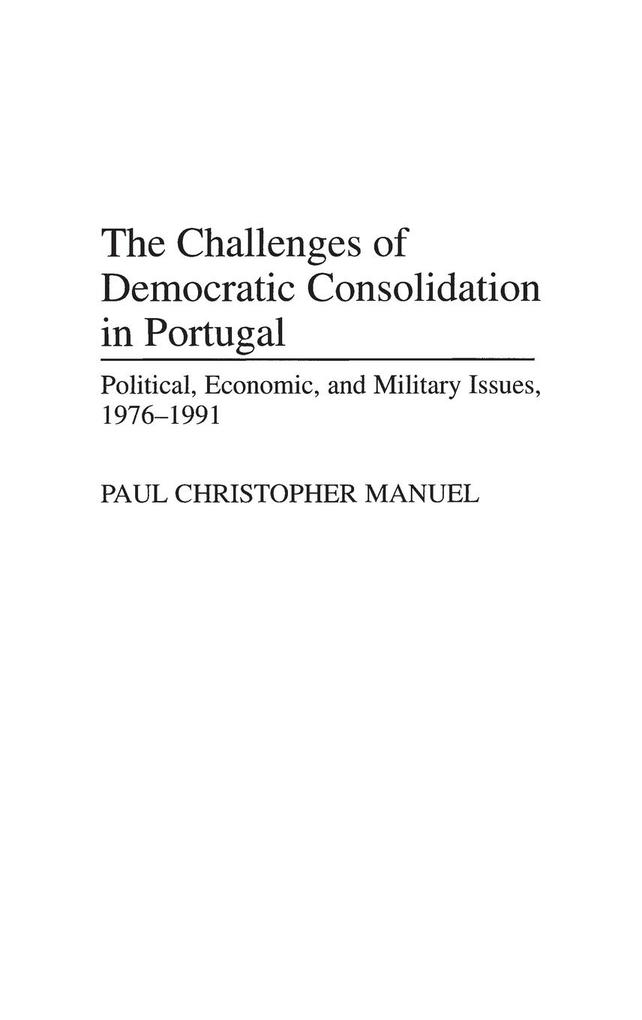This study examines the process of democratic political consolidation as seen in Portugal. It considers how, by solving problems and fulfilling expectations, Portugal's relatively new democratic regime has improved its chances for long-term durability. As Maravall has suggested, once democracies are re-established after a period of dictatorial rule, new problems emerge: the efficiency of the new political system, not just its legitimacy, becomes the main issue. In the case of Portugal, the government has been strengthened by dealing successfully with several different sets of problems. The author analyzes these problems and this process by dividing Portugal's consolidation period into three recognizable intervals, during which the new regime has had to simultaneously confront political, economic, and military challenges. Scholars in comparative politics and government will find this a useful study of democratic development.
Inhaltsverzeichnis
Preface
The Challenges and the Players of the Portuguese Democratic Consolidation
The Consolidation's First Period: Political and Economic Instability, 1976-1979
The Consolidation's Second Period: The National Assembly Resolves the Military Challenge, 1979-1983
The Consolidation's Third Period: The National Assembly Realizes Political Stability and Economic Growth, 1983-1991
Summary and Conclusion: The Challenges of Democratic Consolidation in Portugal
References
Index












